Veganism - it’s just something for middle-class ‘hippies’ right? Vegans are those tree-hugging, hemp-wearing festival-goers who say ‘man’ far too much. Well perhaps it’s time for a rethink on that stereotype. At least if you care about environment, that is.
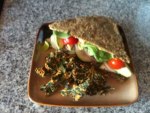
Could you fight Climate Change with a Kale Sandwich? It's very tasty (apparently) (Image: GoneRaw.com)
A new documentary called ‘PlanEAT‘ sets out to show the effects our dietary choices have on our health and the environment. Citing a selection of research, the film’s single purpose is encourage us to eat a more ‘plant-based’ diet (that’s the trendy new name for veganism). You could call it the ‘Super Size Me‘ for the animal-loving eco-warrior.
If this film has the impact it hopes to achieve, the future could be one that sees us ditching our hamburger and milkshake for Kale Sandwiches and Lime Mousse (made from Tofu, no less).
Hmm, I think some of us are going to need some very serious persuasion…
The Environmental Impact of Eating Meat
In the USA, 17% of all fossil fuel emissions are due to food production. From this premise, Professor Gidon Eshel published a paper in 2006 examining how the different types of food affected Green House Gas emissions. He compared the typical American’s meat-based intake to a variety of other diets. ‘PlanEAT’ uses his research’s startling conclusions. - just one person turning vegan reduces CO2 emissions by the equivalent of 1.5 tons per year - which is considerably more than switching from a gas-guzzling car to a super-efficient hybrid one (and a darned sight cheaper too). By my calculations, if half of Americans went vegan - sorry had ‘plant-based’ diets - then that would be the equivalent of cancelling out the CO2 emissions of Pakistan, Kenya and Cyprus combined!
Film-makers Shelly Davis and Or Shiomi also highlight oceanic dead zones - lifeless areas of sea caused by agricultural run-off. They attribute meat production as a key cause to these marine wastelands. You, like me, may not have realised that in the Gulf of Mexico there is a dead zone the size of Oregon: A region of sea effectively ‘dead’ and uninhabitable to marine life. Now that’s pretty scary stuff…The message of ‘PlanEAT‘ is simple: If you care about the environment then you will take meat products off your menu.
Health impacts of meat
Reviewing the works of T Colin Campbell and Dr. Caldwell Esselstyn, the documentary also looks at the potential health impacts a high animal protein diet has. Citing Dr Campbell’s famous 1998 China Study (which is now expanded and selling as a book) which concluded that the traditional Chinese diet - low in animal fat and protein - lowers rates of heart disease and cancer. Similarly, Dr Esselstyn research suggests that a plant-based, oil-free diet can prevent and reverse coronary heart disease (interestingly, he also has a sideline in selling books).
.
A ‘plant-based’ diet - could you really do it?
Neither Campbell or Esselstyn are without their critics, and the health case against animal protein is not as open and shut as ‘PlanEat’ would have you believe (documentary makers - tsk tsk).That said, I think we all know that cutting down on the number of burgers we eat would do our arteries some good. Moreover, if you thought you needed chicken and egg whites to get a buff body, just have a chat with vegan bodybuilder Kenneth Williams.
Most of the ideas in ‘PlanEAT’ have been around the block for a while - and this initiative is essentially a rebranding of what scientists have known for many years. However the environmental arguments for ‘plant-based’ eating are compelling: Developing countries like China and India are growing in wealth; and with this increasing affluence so traditional diets are becoming replaced with meat-based ‘Western’ ones. Producer Shelly Davies argues that we Westerners must act now, setting a moral and ethical precedent by stopping eating so many meat-based meals.
I did try to be a vegan once. Six months without meat, milk or dairy products left me feeling constantly lacking in energy - and I won’t mention what all that fruit and veg did to my ‘gas’ emissions!I’m sure I wasn’t doing it right but could our culture really change? Would we really want to?
The magazine GOOD (A periodical dedicated to ‘social causes’) advocates vegetarianism and veganism. Paul McCartney is the pin-up boy for Meat Free Mondays, and with Facebook’s CEO Mark Zuckerberg promising to only eat the meat he kills - so perhaps society’s attitudes really are changing.
Perhaps.
No, let’s get real - so many of us love eating meat and dairy products that it’s going to take a tectonic shift in thinking before people give them up. Just imagine - no steaks, fish, milk, ice cream or milk chocolate. I think I might cry… (although in fairness ‘PlanEat’ have provided lots of imaginative substitute recipes)
Mmm, I just wonder whether the solution could be to use our diets like carbon-offsetting: If I don’t take a car journey today can I have a steak for dinner please?
.
Thanks for reading - your comments and feedback are warmly welcomed!
.
Disclaimer: It is strongly advised to seek advice from a qualified nutritionist or health professional before making dramatic dietary changes, especially for children and pregnant.
Related Articles:
Has the ‘Five-a-Day’ Scheme made any difference?
Wind Turbines - Do we really think they’re ugly?
How to Survive Global Warming (possibly)
Read More:
Visit the PlanEAT website
Advice on a healthy vegan diet (NHS)
Calculate the carbon footprint of your lifestyle (Carbon Independent)
Abigail Wick argues the case against veganism
References:
Gidon Eshel and Pamela A. Marti (2006). Diet, Energy and Global Warming Earth Interactions, 10 (9), 1-17 DOI: 10.1175/EI167.1
Campbell TC, Parpia B, & Chen J (1998). Diet, lifestyle, and the etiology of coronary artery disease: the Cornell China study. The American journal of cardiology, 82 (10B) PMID: 9860369
Fengxia Dong & Frank H. Fuller (2007). Changing Diets in China’s Cities: Empirical Fact or Urban Legend? Center for Agricultural and Rural Development at Iowa State University.

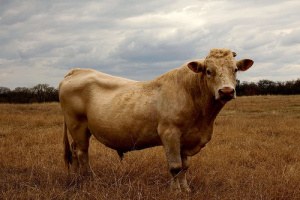

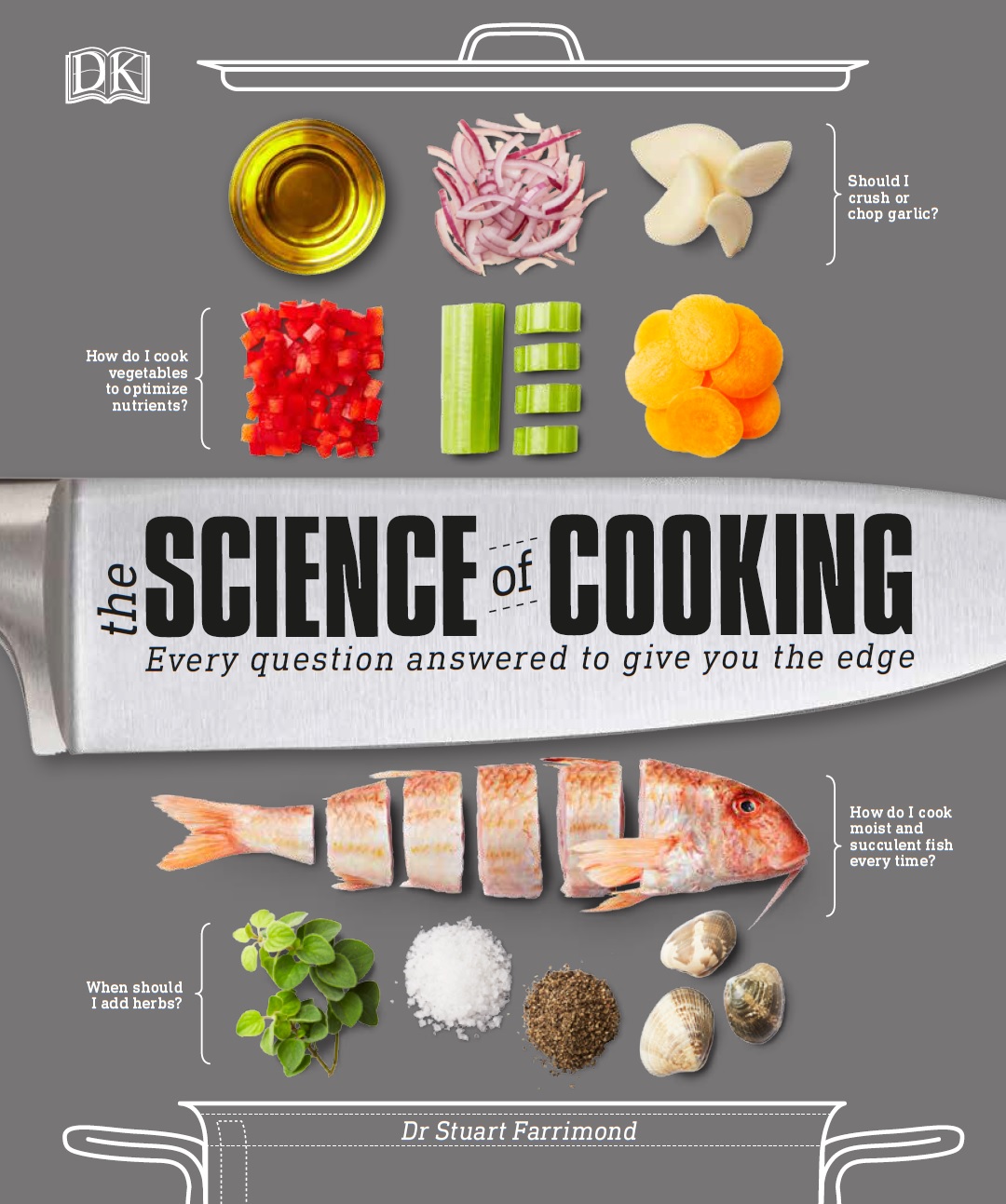



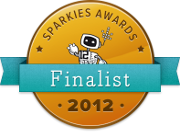
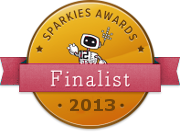
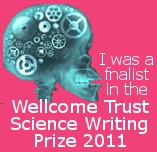

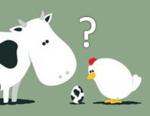
Except for my clothes I’m a vegan. I have a lot of energy, enough for hours-long bike rides in the local foothills and mountains every day. Being a vegan doesn’t inherently cut energy levels.
Posted by Scott | June 6, 2011, 10:27 amThanks Scott!
Yes, you’re right it doesn’t. I didn’t do it properly - not enough carbohydrates (e.g. wholegrains) and fats, and so was tired a lot of the time.
Do you find it difficult to get a balanced diet with enough nutrients (e.g. iron, B12, etc)?
Posted by Stuart Farrimond | June 6, 2011, 10:49 amI will never give up my blue cheese stuffed burgers, or BBQ chicken! You can’t make me… 🙂
Posted by Rob Owen | June 8, 2011, 10:25 pmSelfishness is the cause of the world’s destruction. That, and a lack of ability to cook delicious meals without flesh of dead animals.
Posted by Abubakar | July 11, 2011, 10:42 am